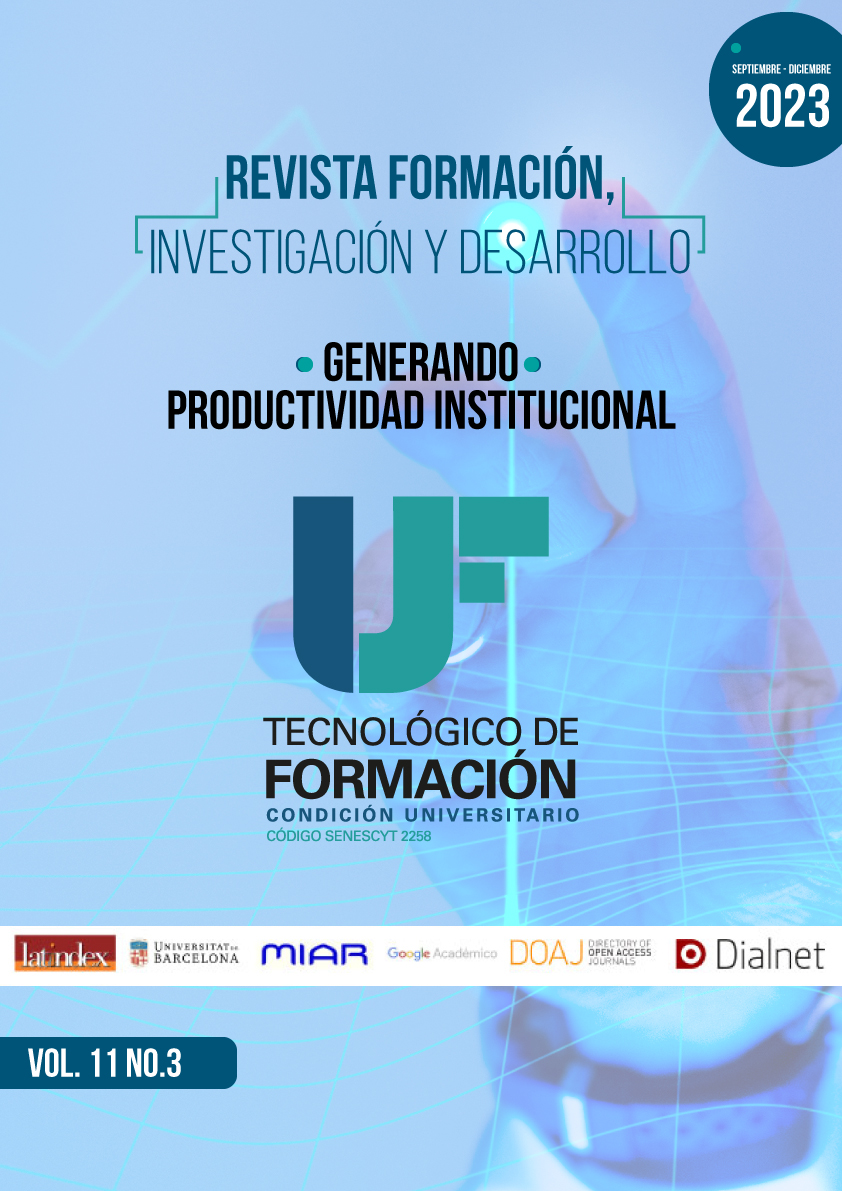The New Challenges of Education in Universities
Main Article Content
Abstract
Faced with the challenges imposed by the improvement of education in the university context, one must be clear about the transformations that take place in the scientific, technological, political, economic and social scenarios to provide a solution to the social demands. Seen this way, it is necessary to train students who, from being a simple receiver of the knowledge obtained in class, become the builder of their own learning and the teacher becomes a facilitator of the teaching-learning process, promoting reflection and inquiry by the learner. This article critically analyzes the challenges of university education, taking into account new educational trends, educational programs and the link between students and the development of their profession.
Article Details

This work is licensed under a Creative Commons Attribution-NonCommercial-ShareAlike 4.0 International License.
Este trabajo tiene licencia DE Atribución/Reconocimiento-NoComercial-CompartirIgual 4.0 Internacional. CC BY-NC-SA 4.0.
How to Cite
References
Bisquerra, R. y Perez, N. (2007). Las competencias emocionales. Educación, 21(10), 61-82.
Briceño, T. (2020). Modelo de gestión educativa. Revista de Ciencias Sociales (Ve), 26(2), 285-296.
Brunner, J. (2012). La idea de universidad en tiempos de masificación. Revista Iberoamericana de Educación, 3(7), 130-143.
Canto Herrera, P. y Bozu, Z. (2009). El profesorado universitario en la sociedad del conocimiento. Revista de Formación e Innovación Educativa Universitaria, 2(2), 87-97.
Colunga SS, R. (2016). Intervención educativa para desarrollar competencias socioemocionales en la formación académica. Humanidades Medicas(2), 317-335.
Concepción, Y. (2008). LAS COMPETENCIAS EN CURRÍCULO UNIVERSITARIO: IMPLICACIONES PARA DISEÑAR EL APRENDIZAJE Y PARA LA FORMACIÓN DEL PROFESORADO. Revista de Docencia Universitaria, 6(1), 1-14.
E, C. (2010). INTERDISCIPLINARIEDAD: DESAFÍO PARA LA EDUCACIÓN SUPERIOR Y LA INVESTIGACIÓN. Revista Luna Azul(31), 156-169.
Enríquez, J. (2006). Educación superior: tendencias y desafíos. Educación Médica, 9(1), 6-10.
Gálvez, R. (2016). La Enseñanza Universitaria y los Retos hacia el Futuro. Revista Torreón Universitario, 5(13), 13-20.
Guzmán, J. y Arrieta, D. (2020). Gestión del conocimiento en Instituciones de Educación Superior: Caracterización desde una reflexión teórica. Revista de Ciencias Sociales, 26(3), 83-97.
Guzmán, J. (2007). La tutoría como estrategia viable de mejoramiento de la calidad de la educación superior. Reflexiones en torno al curso. Revista de Investigación Educativa(5), 1-22.
Irigoyen. Juan, J. Miriam, J. y Acuña, Y. (2011). COMPETENCIAS Y EDUCACIÓN SUPERIOR. Revista Mexicana de Investigación Educativa, 16(48), 243-266.
J, A. (2012). La responsabilidad social de las instituciones de Educación Superior. Revista COEPES(11), 105-107.
Leon, G. (2007). Psicologia, educacion y sociedad. Un estudio sobre el desarrollo humano. La Habana: Editorial Felix Varela.
Organización para la Cooperación y el Desarrollo Económico. (6 de enero de 2011). OECD iLibrary. Obtenido de OECD iLibrary: https://www.oecd-ilibrary.org
Ortiz-Colon, A. Jordan, J. y Agredal, M. (2018). Gamificación en educación: una panorámica sobre el estado de la cuestión. Educaçao e Pesquisa, 44(1), 1-17.
Trujillo-Segoviano. (2014). El enfoque en competencias y la mejora de la educación. Ra Ximhai, 10(5), 307-322.
UNESCO. (8 de julio de 2009). UNESDOC Biblioteca Digital. Obtenido de UNESDOC Biblioteca Digital: https://unesdoc.unesco.org/
Vezub, L. (2007). La formación y el desarrollo profesional docente frente a los nuevos desafíos de la escolaridad. Profesorado. Revista de Currículum y Formación de Profesorado, 11(1), 1-23.
Vollmer, A. (1994). Nuevas demandas a la educación y a la institución escolar, y la profesionalización de los docentes. Revista IBERO AMERICANA de Educacion, 5, 11-43.

